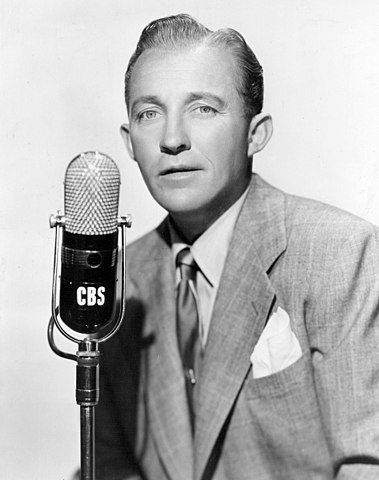This This Week in Cascadia is a weekly segment. You can view all Weeks in Cascadia history from its main page here.
April 1, 1901 – A number of people in Spokane’s growing Orthodox Jewish population meet and organize into a congregation of 22 members, each paying 50 cents in monthly dues. They obtain an official charter on two days later, and begin to raise money for their own synagogue. The Keneseth Israel Synagogue is finished in 1909 and becomes the congregation’s home until 1966, when the path of the Interstate 90 freeway project through downtown Spokane ran right through the synagogue. The congregation merged with the city’s other main Jewish congregation at the Temple Emanu-El and built the Temple Beth Shalom, which is now the center of Spokane’s Jewish community.

April 2, 1984 – Diplomats from the United States and Canada sign the Skagit River Treaty, which terminates plans to build Ross Dam higher and thus allow the water level to rise. Present in Washington, D.C. at the ceremony is former Seattle Deputy Mayor Bob Royer, who negotiated the terms with British Columbia. Under the treaty, Seattle agreed not to engage in construction to raise the water in Ross Dam 125 feet, a procedure that would have flooded large parts of British Columbia. In exchange for this, Seattle City Light was given the right to purchase electricity from British Columbia hydroelectric sources in amounts equal to the power that would have been generated by a higher Ross Dam.

April 3, 1956 – An attempted bank holdup in Vancouver, BC marks the first use of a machine gun in Greater Vancouver crime history. Just after 10:00 a.m. at the Royal Bank at 403 North Road three masked guys burst into the bank, one of them armed with a Thompson submachine gun, threatened the tellers. The robbers stuffed $10,000 into a paper bag and turned to leave. However, the bank manager had tripped the alarm and three RCMP officers responded to the call. One of them was Constable Bud Johnstone who got into a gunfight with the felons. Johnstone was shot eight times, but managed to kill one of the men and wound another. The surviving two bandits and their driver were all captured and Johnstone was rushed to Royal Columbian Hospital. Two bullets were taken from his chest and one from his hip. Five other bullets had passed completely through his arms, hand and shoulder. The next day in the hospital Const. Johnstone, with his wife Edith by his side, was chatting with a Vancouver Sun reporter (unnamed.) Johnstone was promoted to Corporal while still in his hospital bed.
April 4, 1930 – Whiteman’s big band orchestra, a renown musical troop, was scheduled to play at the Vancouver Theatre and a dance at the Hotel Vancouver in Vancouver, BC. Whiteman’s orchestra, which had featured players like Tommy Dorsey, Joe Venuti, Bix Beiderbecke and a singer named Bing Crosby, was eagerly awaited by thousands of music-loving Vancouverites. However, the groups was stopped at the border by A.E. Skinner, immigration commissioner, who forbade the dance concert stating that “Musicians are debarred from entering Canada except as ‘entertainers’. In playing for dances, they are not ‘entertainers’.” Whiteman responded that if his orchestra couldn’t play for the dancers it wouldn’t perform in the theatre either, so he and his band packed up and left for Seattle.

April 5, 1972 – A spring thunderstorm’s high winds damage a lumber warehouse in Tigard, Oregon. As the storm traveled northeast across town, it broke branches and uprooted trees, and spawned a tornado, which touched down on the banks of the Columbia River, tossing dozens of cabin cruisers and damaging a dry dock, boat houses and other buildings before crossing the river to Portland. The Portland/Vancouver tornado was the most devastating tornado in Oregon’s recorded weather history, killing six people and over injuring 300.
April 6, 1908 – Twenty-two timber companies organize the Washington Forest Fire Association, which fields the first organized fire patrol system in the state. Members assess themselves about one-half cent per acre to pay for a force of men to detect and battle fires on members’ land. Over the next 50 years, the Association will collaborate with state, and later federal, fire suppression programs and will embark on a campaign to change the logging practices that cause most forest fires.
April 7, 1890 – The Portland Hotel opens, sporting 326 elegant guest rooms distributed over 8 floors and everything else one would expect in a modern hotel: parlors and sitting rooms, a restaurant, a bar, a ballroom, dining rooms, etc. It also boasted steam heat and gas and electric lights. Railroad man Henry Villard, who also spearheaded efforts to build Union Station, began constructing the hotel in the 1880s, but ran out of money. A group of Portland business men raised money to finish construction by selling subscriptions, and the hotel was completed. In 1951 the hotel was razed and replaced with a parking lot, as developers were wont to do in the 1950s, which would later be replaced with Pioneer Courthouse Square.

This Week in Cascadia is a weekly segment. You can view all Weeks in Cascadia history from its main page here.



